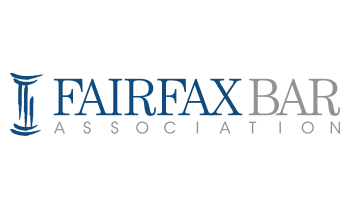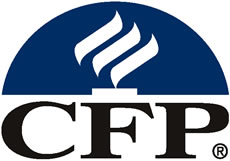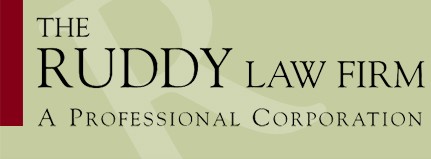Probate
1. Overview
Probate is a process by which the debts of a deceased person are identified and paid, and title to the remaining assets are distributed to the beneficiaries of the decedent’s estate. Some probate is a court-supervised process for distributing the individually owned assets of a deceased person to beneficiaries in accordance with the instructions written in the person’s will, or if there is no will, then by the laws of intestate succession. Other probate involves nothing more than filing some papers with the probate office. Sounds simple and yet it is not.
Estate administration can be complex and the people you have designated must have competent and experienced counsel to guide them through the process. They must make important decisions – sometimes quickly – and they may need help to make them wisely. They may need to prepare inventories of your property, prepare tax returns, or sign other important documents on your behalf. Ultimately they must divide and distribute your property to those individuals or charities you identified in your will or trust agreement.
The estate administration process carries a lot of responsibilities. We can help guide your loved ones through the process as sensitively and completely as possible, and will try to make it as straightforward and efficient as possible.
2. Probate and Estate Administration
Assuming a formal, court supervised probate is necessary, what follows is a discussion of the process for such a probate. There are many tasks to be accomplished along the way, so the discussion below is but an overview (and not a substitute for advice from an attorney or tax professional of your choice). The interviews cited below can be found at The Probate Nation website under Resources – Television Show.
Step #1: Someone needs to qualify as the executor, if there is a will, or as administrator, if there is no will. Who should qualify should be discussed, and it is important to confirm that a formal probate is necessary. The Probate Office with jurisdiction over the estate can be helpful in figuring this out.
HELPFUL RESOURCE: Interviews on The Probate Nation of the Fairfax County and Loudoun County Probate Offices, in which they review the process to get qualified in their office to probate an estate.
Step #2: Make an appointment with the probate office of the local Circuit Court. Check the local Circuit Court website for instructions on what to bring with you to the appointment. At a minimum, you will need an original death certificate, name and address of heirs at law and under the terms of any will, original will and codicil of the will, and a photo identification.
HELPFUL RESOURCE: See the interviews on The Probate Nation of the Commissioner of Accounts from Arlington, Fairfax, Loudoun and Fauquier County for guidance on how each office operates, and resources they provide to the public to make the probate process they oversee go as smoothly as possible.
Step #3: You need to give certain notices to beneficiaries or potential beneficiaries of the estate, and then report this to the Probate Office.
HELPFUL RESOURCE: In an interview on The Probate Nation, Arlington attorney George Dodge reviews these topics, and how to prepare both the required Notice and the Affidavit.
Step #4: You need to file an Inventory with the local Commissioner of Accounts serving the Probate Office where you were qualified.
HELPFUL RESOURCE: In an interview on The Probate Nation, Loudoun County attorney Jared Tomac reviews how to prepare the Inventory.
Step #5: You have a host of tasks at this point, all focused on collecting or marshaling the assets of the decedent, identifying his debts and liabilities, filing final personal income tax returns, obtaining an FEIN, forwarding the mail, and much more.
HELPFUL RESOURCE: In an interview on The Probate Nation, Fairfax County attorney Mary Lawrence and Falls Church attorney John Jackson discuss the process of Marshalling the Assets of an estate, including filing a change of address with the US Post Office, checking the Virginia (an other states) website for any unclaimed property belonging to the decedent, reviewing the decedent’s bank account statement, and much more.
Step #6: You have to file an accounting with the Commissioner of Accounts to report all money received, expenses paid, payments to beneficiaries, and document all of the foregoing, and then report the assets on hand and document the assets reported. This is not complicated in and of itself, but what needs to be done is not necessarily “intuitive”.
HELPFUL RESOURCE: In an interview on The Probate Nation, Traci Wenberg, VP of Administration, and Cathy Brudvig, Head Auditor, for the Fairfax Commissioner of Accounts, provide an overview of the accounting process, and in a later interview, Cathy Brudvig provides step by step instructions on how to prepare an estate account.
Step #7: All tax returns, both personal and fiduciary, need to filed, and tax clearances should be sought for both the decedent AND the estate.
HELPFUL RESOURCE: In an interview on The Probate Nation, Frank Stitely, CPA from Chantilly discusses the Initial Tax Considerations for an executor or administrator, including selection of the tax year for the estate, obtaining a FEIN, filing a Notice of Fiduciary Relationship with the IRS, applying to the tax authorities to confirm all tax returns have been filed and whether there are any unpaid taxes, and more. Reviewed the Application for Federal Employer Identification Number (“FEIN”), and Notice of Fiduciary Relationship/IRS Form 56, including key information needed to complete each Form.
Step #8: Some hearings before the Commissioner of Accounts, and in the Circuit Court, may be necessary along the way as you work to confirm all of the debts and liabilities.
Step #9: The Executor must proceed carefully at this stage, as there are steps that need to be considered and in many cases taken, including having the Commissioner of Accounts hold a Debts and Demand Hearing, having the court enter a Show Cause Order and subsequently an Order of Distribution, obtaining tax clearances from the various tax authorities, making final distributions to the beneficiaries and procuring appropriate documentation from them to protect yourself , and filing with and obtaining approval of the final account by the Commissioner.
HELPFUL RESOURCE: In an interview on The Probate Nation, attorneys Jean Galloway Ball and John F. Boland discuss the steps to be taken and pitfalls to avoid as you wrap up the administration of an estate. Much has been done to get to this point. Assets have been collected and often liquidated to cash, debts of the decedent have been identified and paid, tax returns have been filed, estate administration bills have been paid, bequests have been paid, filings due the Commissioner have been filed and approved, and much more.
* * * * * * * * * *
We have been probating estates for over 30 years. The Virginia laws governing probate continue to change, but the problems that arise seem to repeat themselves again and again. Frequently clients attempt to undertake probate without the advice of counsel, and get themselves in trouble either with the Commissioner of Accounts who is overseeing the probate, beneficiaries of the Estate, the tax authorities, or any combination of the foregoing. We can help.







